Happy Friday! With the welcome news that Israeli hostages may soon return home to their families after more than two years in Hamas captivity, it’s a reminder to appreciate our loved ones. Call a friend, hug a family member, and have a lovely weekend.
Quick Hits: Today’s Top Stories
- The Israeli Cabinet voted early Friday to approve President Donald Trump’s plan for a ceasefire in Gaza and the release of all remaining Israeli hostages, both living and deceased, held by Hamas, with Trump saying the return of the estimated 20 surviving hostages would occur on “Monday or Tuesday.” The agreement, signed Thursday in Egypt’s Sharm el-Sheikh after days of negotiations, requires Israel to release around 2,000 Palestinian prisoners, 250 of whom are currently serving life sentences. As part of the agreement, Israeli forces have withdrawn from Gaza’s urban areas—while still controlling 53 percent of its territory. Far-right Finance Minister Bezalel Smotrich opposed the deal, expressing “great fear of the consequences of emptying prisons and releasing the next generation of terror leadership.”
- Russian forces launched an aerial assault on Kyiv early Friday morning, setting fire to a high-rise apartment building in Ukraine’s capital and cutting power to some parts of the city. At least 12 people were injured in the attack, according to Kyiv Mayor Vitali Klitschko. The Friday strikes followed Russian overnight strikes the previous day in several regions that killed at least five people, per local authorities, including three in the Sumy region and two in the southern Kherson Oblast. Thursday’s assault targeted civilian and energy infrastructure, including gas production facilities. Also on Thursday, Ukrainian officials ordered the evacuation of children from the area in and around Kramatorsk, a city in eastern Ukraine close to the raging frontlines. Meanwhile, that same day, the U.S. announced new sanctions on Serbia’s largest gas and oil distributor, the Petroleum Industry of Serbia, which is majority owned by the Russian state-run Gazprom Neft.
- A federal grand jury indicted New York Attorney General Letitia James on Thursday on two felony charges: bank fraud and making false statements to a financial institution. The allegations center on claims that James falsely declared her Norfolk, Virginia, property to be a second residence in order to obtain favorable loan terms for investment properties. U.S. Attorney Lindsey Halligan said the charges represent “intentional, criminal acts and tremendous breaches of the public’s trust,” while prosecutors allege James saved $18,933 due to the lower interest rate. James, who previously secured a nearly $500 million judgment against the Trump Organization for civil fraud, called the prosecution “nothing more than a continuation of the president’s desperate weaponization of our justice system.” Her first court appearance is scheduled for October 24 in Norfolk.
- Belgian authorities arrested three men on Thursday over a suspected jihadist plot to assassinate Prime Minister Bart De Wever using drone-mounted explosives. Federal prosecutor Ann Fransen said investigators found bomb-making materials and a 3D printer at the suspects’ homes in Antwerp, including one residence a few hundred meters from De Wever’s home. The suspects face charges of attempted terrorist murder and participation in a terrorist group, with two due to appear before an investigating judge on Friday. Defense Minister Theo Francken thanked the security services for preventing what officials described as a likely major terrorist act.
- U.S. District Judge April Perry issued a temporary restraining order on Thursday blocking Trump from deploying National Guard troops to Illinois, saying that the directive violates the Constitution. Perry ruled that the federal government had not met the burden needed to send troops into the state and found no credible evidence of rebellion in Illinois. The 14-day order bars National Guard troops from any U.S. state from deploying within Illinois, with a hearing scheduled for October 22 to determine whether the order should be extended. Illinois Gov. J.B. Pritzker said in a statement that “Donald Trump is not a king—and his administration is not above the law.”
- Vladimir Putin admitted to Azerbaijani President Ilham Aliyev on Thursday that Russian air defenses were responsible for the December 2024 downing of an Azerbaijani jetliner that killed 38 people. The Embraer 190 was flying from Baku to Grozny when it suddenly disappeared from the radar near Russia’s Caspian coast and later crashed near Aktau, Kazakhstan. Putin claimed that Russian forces had been tracking three Ukrainian drones that entered Russian airspace that night, and two missiles fired at them malfunctioned, exploding about 10 meters from the passenger plane. Russian officials had initially blamed poor visibility or a bird strike before acknowledging air defense involvement. Putin called the incident a “technical failure,” and claimed he would compensate victims’ families and punish those responsible. Aliyev thanked Putin for personally overseeing the investigation and signaled a desire to move past the incident.
- China’s Commerce Ministry announced Thursday that it has expanded export controls on rare earth elements and related technologies, with foreign companies now needing to attain Chinese export licences for any products containing more than 0.1 percent of 12 of the 17 rare earth minerals, or made using Chinese rare-earth extracting, refining, magnet-making, or recycling technology. China accounts for more than 90 percent of the global rare earth supply, materials critical to semiconductors, electric vehicles, and defense technology. The ministry separately added 14 foreign enterprises to its “unreliable entity list,” which blacklists them from doing business with or working alongside Chinese individuals or groups. One of the subject businesses was TechInsights, a Canada-based research firm that in October discovered that Chinese tech company Huawei was using a chip manufactured in Taiwan. The restrictions come ahead of an expected meeting between Trump and Chinese leader Xi Jinping later this month at the Asia-Pacific Economic Cooperation summit in Seoul, South Korea.
- The European Commission announced an investigation on Thursday into reports that Hungarian Prime Minister Viktor Orban sent spies into Brussels to collect information and recruit an unnamed EU official. Documents reviewed by outlets based in Belgium, Germany, and Hungary showed that a Hungarian foreign intelligence official had worked in the embassy’s cohesion policy department from 2015 to 2017 in a reportedly covert operation seeking access to information on various EU institutions. According to a European Commission spokesperson, “The Commission is taking note of all the reporting today, according to which there have been espionage operations pursued by a Hungarian intelligence service against the EU and members of its staff,” and added that they will be forming an “internal group” to investigate further.
- Taiwanese President Lai Ching-te pledged on Friday in a National Day address to establish a rigorous air defense system with high-level detection and effective interception capabilities, which he referred to as a “T-Dome” in apparent reference to Israel’s Iron Dome system. The president also pledged to raise defense spending to more than 3 percent of GDP and to reach 5 percent by 2030, calling the increase “a clear necessity to counter enemy threats.” The Taiwanese Defense Ministry said this week it is training soldiers to shoot down drones and procuring anti-drone weapons systems in response to China’s expanding use of military drones.
- Treasury Secretary Scott Bessent announced Thursday that the U.S. finalized a $20 billion currency swap framework with Argentina and directly purchased pesos in the open market, making good on Trump’s pledge to stabilize the country’s economy. The rare intervention sent Argentine bonds and the peso sharply higher, with the 2035 bond rising 4.5 cents to trade at 60.5 cents on the dollar. Bessent said Argentina faces “a moment of acute illiquidity” and that the Treasury is prepared to “take whatever exceptional measures are warranted to provide stability to markets,” with the backstop seemingly aimed at giving President Javier Milei a boost ahead of October 26 midterm elections. Democratic Sen. Elizabeth Warren introduced legislation Thursday to prohibit the use of the Exchange Stabilization Fund to “bail out Argentina’s financial markets,” calling it “inexplicable that President Trump is propping up a foreign government, while he shuts down our own.”
- Peru’s Congress voted early Friday to remove President Dina Boluarte from office, in a 124-0 impeachment vote. This was the ninth impeachment attempt against Boluarte—who took office in December 2022, after her predecessor was removed by impeachment—and was prompted by her inability to address the country’s persistently high crime. Official reports indicate that 6,041 Peruvians were killed between January and mid-August, and there were 15,989 complaints about extortion filed between January and July. The political tipping point was a concert shooting in Lima on Wednesday, when a gunman opened fire, injuring five people. Boluarte had also been dogged by accusations of accepting bribes. Congress President José Jerí was sworn in as interim president, and elections are scheduled for April 2026.
- The Norwegian Nobel Committee announced on Friday that it had awarded the 2025 Nobel Peace Prize to Venezuela’s main opposition leader, María Corina Machado, for her work promoting democratic rights in her home country. In August, Machado wrote in the Wall Street Journal that she had gone into hiding following last year’s Venezuelan elections, which were widely believed to have been rigged by the country’s leader, President Nicolás Maduro. She had been the main opposition candidate in that election, only for her candidacy to be banned by the regime.
- Hungarian novelist László Krasznahorkai—best known for his dark, philosophical works and signature spiraling, page-long sentences—won the 2025 Nobel Prize in Literature on Thursday. Nobel judges describe Krasznahorkai as a “visionary oeuvre that, in the midst of apocalyptic terror, reaffirms the power of art.” Krasznahorkai’s most famous novels, Sátántangó and The Melancholy of Resistance, depict the disillusionment and decay of late socialist Hungary and were later adapted for film by director Béla Tarr.
Tokyo Drift
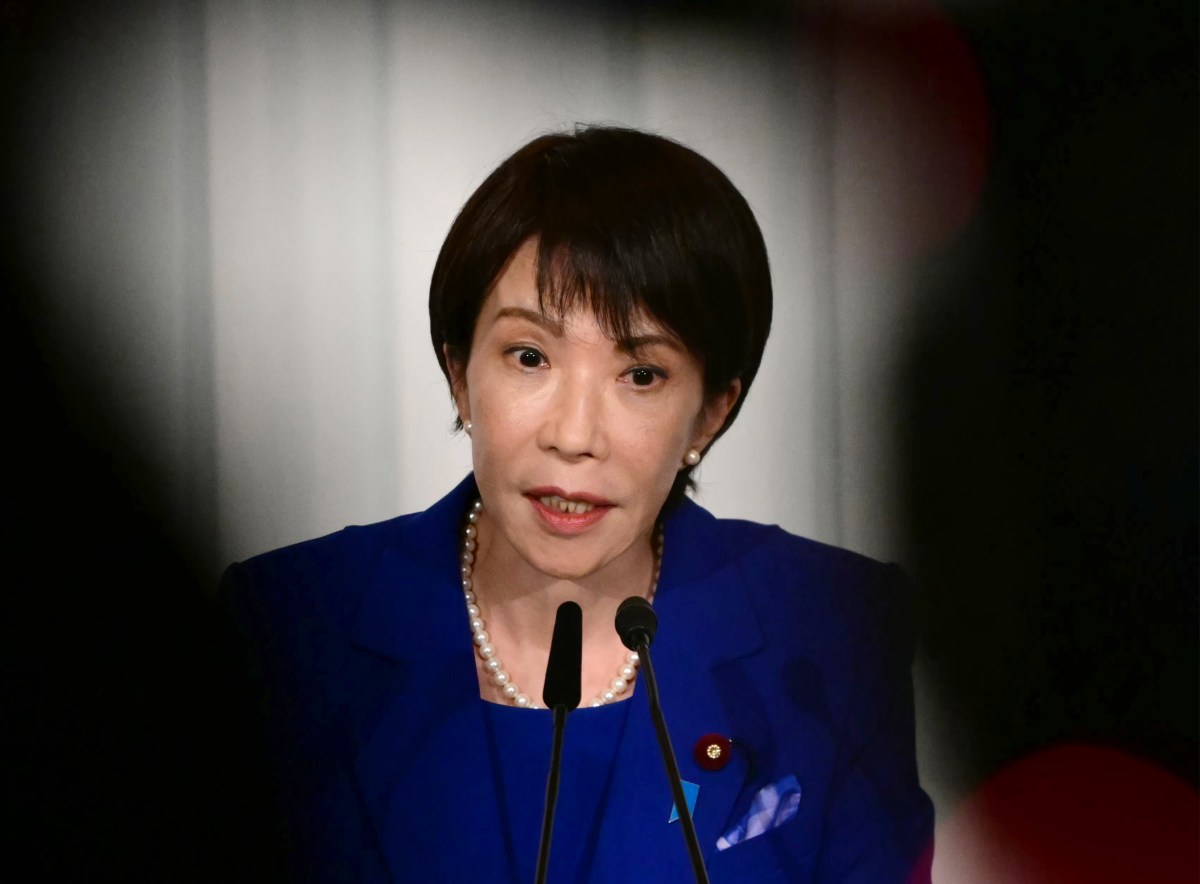
Sanae Takaichi has the chance to be the most politically powerful woman in Japan in more than a thousand years. It’s been 253 years since a woman last ruled Japan—the Empress Go-Sakuramachi. Her position was also largely ceremonial, with the shogun acting as the real power on the island. But the 64-year-old Takaichi, who won the Liberal Democratic Party’s leadership contest on September 30, is almost sure to be Japan’s next prime minister.
Drawing inspiration from both Margaret Thatcher and former Japanese Prime Minister Shinzo Abe—both hard-charging conservatives who reshaped their country’s politics—Takaichi has promised to revitalize her party. Former Prime Minister Shigeru Ishiba resigned in September after an election loss this summer—not least because of his perceived failure to tackle campaign financing scandals and grapple with revelations of deep party ties to the controversial Unification Church.
“People say they no longer understand what the LDP stands for as a party,” Takaichi said late last month, reflecting on July’s election, where the LDP lost its majority in both houses for the first time in decades. “They wonder whether we grasp the hardships of daily life. These words really shocked me. We’ve received particularly tough remarks from our bedrock supporters—those who stood by us even when we were in opposition.”
As a non-paying reader, you are receiving a truncated version of The Morning Dispatch. You can read our full item in the members-only version of TMD.
But unlike Abe, who oversaw the return of the LDP to its place atop Japan’s party system and crafted a more assertive foreign policy for the traditionally pacifist country, Takaichi faces significant constraints both at home and abroad. Internationally, she must navigate a more challenging environment, with China, Russia, and North Korea increasingly aligned and the U.S. strategy toward the Indo-Pacific deeply uncertain.
Domestically, her challenge is even more acute. The LDP is perhaps the most successful modern political party in the world. Except for interludes between 1993 and 1994, and from 2009 to 2012, it has been Japan’s default governing party for most of the country’s democratic history. But after July’s House of Councillors elections saw the LDP lose its majority, the party is facing a first: a minority in both chambers of the Diet.
Takaichi, then, will need the votes of other parties to ensure she is confirmed as prime minister by a vote of both houses of the Diet in mid-October (the lower House of Representatives wins if the houses disagree). Her first test was to try to secure the votes of the Komeito Party, a smaller centrist party that has traditionally been a partner of the LDP. Originating with a Buddhist political movement, Komeito is wary of Takaichi’s more hawkish foreign policy stances, as well as her willingness to work with politicians who had been implicated in a previous campaign financing scandal. After a meeting on Friday morning, the 26-year partnership between the LDP and Komeito collapsed, which Komeito party leader Tetsuo Saito attributed to Takaichi’s “insufficient” explanation of a political donations scandal.
Takaichi now needs to secure an additional 37 seats to hold a required 233-seat majority in the House of Representatives; but even had they received Komeito’s support, Takaichi would have still needed to look outside the LDP’s traditional sources of parliamentary backing for three more votes.
She has two main options: the conservative Japan Innovation Party, and the populist Democratic Party for the People, led by the charismatic Yuichiro Tamaki, who campaigned on the refreshingly blunt slogan of “increase take-home pay!” and enjoys growing support among disillusioned younger voters. Tamaki said Thursday, however, that his demands for tax cuts as part of a coalition agreement had not yet been met. But the DPP remains the most likely candidate to complete Takaichi’s coalition, as both she and Tamaki, like Abe, favor expansionary fiscal and monetary policies. She told reporters after winning the LDP’s leadership race that “The government must be responsible for fiscal and monetary policy. The BOJ [Bank of Japan] will then consider the most appropriate means”—a clear reference to “Abenomics,” the former prime minister’s effort to pressure Japan’s central bank to enact aggressive stimulus measures.
However, with Japan now experiencing mild inflation for the first time in decades, it’s likely that Takaichi won’t be as aggressive as her ideological predecessor, Christina Davis, a professor of Japanese politics at Harvard University, told TMD. “Japan is very good at incremental change,” Davis said, which is probably “what’s necessary at this time.”
To secure support from younger voters, Takaichi will likely need to moderate some of her more conservative cultural views. She has a history of opposing two proposed reforms that have recently become bellwethers for younger, more socially liberal Japanese voters: gay marriage and making it legal for married people to keep their original surnames (Japanese law requires couples to choose one surname, in practice overwhelmingly the man’s). On the latter issue, Takaichi has struck a peculiar balance: She legally took her husband, Taku Yamamoto’s, name when they were first married, while using her maiden name in public. However, after the couple divorced and remarried each other, her husband took her last name, becoming Taku Takaichi.
“She’s way out of step with where young people are,” Charles McClean, a political scientist at Yale who studies Japanese youth voters, told TMD of Takaichi’s social views. It’s unclear, he argued, whether “somebody coming in and just saying kind of the same old messaging” as Abe can restore the LDP’s dominance, he said, given the growth in support for upstart alternative parties. “That doesn’t feel like the moment.”
Takaichi has also spoken to a growing discontent with foreigners among many Japanese. Japan’s foreign population is only about 3 percent of the total population—far lower than in other wealthy countries—but the number of foreign workers has tripled in the past decade, and negative views of foreigners—especially those who come as migrant workers from Korea and China—are becoming common in Japan. The far-right populist party Sanseito gained seats in the Diet for the first time this summer after campaigning on an anti-immigration agenda.
Even relatively liberal younger Japanese, usually less wary of immigration, are unsettled by a recent surge of tourism to Japan, fuelled by a weak Yen, McClean told TMD. During her first campaign speech last month, Takaichi claimed that tourists kicked the beloved deer of Nara Park, where the tame animals are designated as national monuments.
Foreign policy—a field in which Takaichi has little experience—will also require walking a tightrope between her more conservative beliefs and pragmatic considerations. She will have to hit the ground running, with Japan expected to attend the annual Association of Southeast Asian Nations meeting in Malaysia and the Asia Pacific Economic Cooperation summit in South Korea later this month.
Takaichi, like other hawkish members of the LDP, will likely prioritize the “trilateral” of the U.S., Japan, and South Korea, Sheila Smith, a senior fellow for Asia-Pacific studies at the Council on Foreign Relations, told TMD. “From a security perspective, she obviously understands the trilateral and its strategic value today,” she said, noting how Takaichi has said that Japan’s trilaterals—U.S.-Korea-Japan, as well as other groupings with Australia and the Philippines, will be a priority.
Japan’s geopolitical situation is “very, very different from the Abe era,” said Mireya Solís, the director of the Center for Asia Policy Studies at the Brookings Institution. “The security landscape has deteriorated.” China has continued to affirm its “no limits” partnership with Russia, also a Pacific power, since the 2022 invasion of Ukraine. North Korea, whose missiles and bellicosity keep Japanese leaders up at night, has also increased coordination with its authoritarian neighbors, sending troops to fight alongside Russian forces in Ukraine and railing against Japanese joint military exercises with South Korea and the U.S.
Traditionally, Japan has leaned on the U.S. to counter threats from its west, and Abe made increasing security cooperation with the U.S. and amending Japan’s pacifist constitution a priority. However, America’s reliability has become an open question. Recent trade negotiations with President Trump were protracted and tense, resulting in a 15 percent baseline tariff on Japanese imports, including cars. The White House’s National Security Strategy—expected to outline Washington’s approach to confronting China—has yet to be released.
“It’s not clear where the U.S. falls right now,” Kristi Govella, senior adviser and Japan chair at the Center for Strategic and International Studies, told TMD, and said that, because of this, Japan is likely to emphasize other regional partnerships. “One of its short-term responses to fluctuations in U.S. policy has been to try to shore up other connections, or to reassure other allies,” she said.
Before working on any of those relationships, Takaichi will have to make a decision: whether to visit the Yasukuni Shrine in Tokyo, a trip she has made before, including when she held Cabinet posts. This controversial Shinto shrine commemorates all Japanese war dead, including several high-profile war criminals from World War II. A visit to the shrine in either an official or “private” capacity is a cultural lightning rod dividing the right from the left within Japan, but it is also deeply offensive to East Asian neighbors like China and South Korea, which feel that Japan has not sufficiently atoned for its actions in World War II.
If Takaichi does visit, the timing and manner of her decision will be critical. Abe made a single high-profile visit to the shrine in 2013, causing a diplomatic uproar with China and Korea, but only after his efforts to seek better relations with Beijing seemed to run into a dead end. Ishiba never paid his respects at Yasukuni, although he sent a ritual tree earlier this year.
Early signs indicate that, as with domestic policies, Takaichi may be leaning toward moderation. “I’ll make a timely and appropriate decision on how to pay my respects to the war dead,” she said Saturday, while claiming that shrine visits “should never be made into a diplomatic issue.” On Wednesday, Japanese newspapers reported that she planned to skip visiting Yasukuni during its autumn festival, held October 17-19, with her diplomatic schedule and concerns from Komeito reportedly in mind. If the decision holds, that will likely be one less diplomatic hurdle for her to overcome.
Takaichi’s aims in both foreign and domestic policy, then, are to restore and stabilize the LDP’s position—and by extension, the Japanese political establishment. “I think that we don’t appreciate enough how remarkable it is that Japan had three decades of slow growth while maintaining political stability,” compared to other rich countries, Davis told TMD. But Takaichi, a former drummer in a metal band, is known for her brashness. “My goal is to become the Iron Lady,” she declared to a group of (likely bemused) schoolchildren late last month, referencing Thatcher’s nickname.
However, constrained by a weak position in parliament and uncertain prospects abroad, she may have to adopt a less unyielding approach. Takaichi’s likely confirmation as prime minister will mark a new era for Japan, and not just because she is a woman—the LDP will have to defend its position atop Japan’s politics in a way it has rarely had to before.
The party’s goal used to be “to make politics boring,” said McClean. “But it’s not boring right now.”
Today’s Must-Read
Latter-day Saints provide something of a case study in the fruits that come when prosocial faith is provided space to live out its ideals. After fleeing Missouri and Illinois—and after the death of Joseph Smith—the Latter-day Saints were once again uprooted. In one of America’s largest overland exoduses, they left for the Rocky Mountains in a final bid to find freedom beyond the traditional bounds of their homeland. Again, religious freedom was about survival. But the Saints also challenged and refined the contours of America’s first freedom, from the polygamy cases of the late 19th century to Utah’s battle for statehood and the four-year hearing over the election of Latter-day Saint Apostle Reed Smoot in the U.S. Senate.
Toeing the Company Line
The End of the Climate Hawk Era
‘Net zero’ is out, energy affordability is in.
The Mamdani Conundrum
Despite his anti-Israel rhetoric, the progressive Democrat is poised to become mayor of the most Jewish city in America.
GOP Senators Push for More Intel on Drug Boat Strikes
Some are increasingly skeptical that targeting the boats is justified.
Republicans See No ‘Blue Wave’ on Horizon—Unless Economy Falters
Party operatives point to the president’s resilience and the Democrats’ struggles as reasons to be optimistic about the 2026 midterms.
Breaking Down the Trump Administration’s Higher Ed Compact
What the offer to trade preferential funding for cultural and operational reforms could mean for universities.
The Political Furies Come For a Maine Oasis
Colby College used to be fairly quiet. No longer.
Conservatives Turning Against Israel | Roundtable
Plus: Israel’s PR problem.
Worth Your Time
- Over the past years, the U.S. has imposed various restrictions to prevent China from buying Nvidia’s top-of-the-line AI chips. Right as these export controls took effect, a little-known Singapore-based company, Megaspeed, started purchasing a lot of the restricted technology. But were they actually buying them or just smuggling them into China? According to a new report by the New York Times, Commerce Department officials are now investigating this—but it’s hard to separate legitimate business from smuggling. As they write: “Megaspeed illustrates the challenges facing U.S. government officials trying to keep China from accessing powerful A.I. chips. After splitting off from a Chinese gaming company in 2023, Megaspeed set up a subsidiary in Malaysia that quickly snapped up nearly $2 billion worth of Nvidia’s most advanced products. Most of those chips came from the U.S. branch of a Chinese company that has already been sanctioned for providing technology to the Chinese military, according to records obtained through ImportGenius, a trade data platform. Megaspeed has funneled those chips to data centers in Malaysia and Indonesia that appear to remotely serve customers in China. That is not necessarily illegal, but it can be found unlawful if it is done on behalf of a Chinese company. U.S. officials have also been scrutinizing whether Megaspeed diverted some of those chips on to China, in violation of U.S. law, two people familiar with the company said.”
Presented Without Comment
Axios: Turning Point USA Will Host Rival to Bad Bunny’s Super Bowl Halftime Show
Also Presented Without Comment
KBS World: N. Korean Leader Pledges to Build an ‘Affluent Socialist Paradise’
Behind The Scenes
Today’s “Behind the Scenes” comes in response to a question from commenter Philip.R.M.Hunt about a choice we make in our international coverage:
Burma? Not Myanmar?
TMD Editor Ross Anderson: The choice of whether to refer to the country as Myanmar or Burma is a contentious one, but The Dispatch uses the latter because we want to avoid legitimizing the military junta that imposed the name change without democratic consent. This article provides some further details for those interested—or you can wait for our upcoming TMD piece on Burma’s continuing political strife.
We also tend to reflect the U.S. government’s official usage and, when an official name or spelling is internationally disputed, we use the version favored by the party more aligned with democratic governance. For example, in the wake of Russia’s invasion of Ukraine, we (and many others) switched from “Kiev” to “Kyiv,” “Odessa” to “Odesa,” and so forth.
To read TMD editor Ross Anderson’s response to the question—or to submit one of your own—become a member today.
Let Us Know
Have any thoughts or questions about today’s newsletter? Drop us a note in the comments or by emailing us at tmd.questions@thedispatch.com. We read every submission, and your message could be featured in tomorrow’s “Behind the Scenes” segment.
Have any thoughts or questions about today’s newsletter? Become a member to unlock commenting privileges and access to a members-only email address. We read every submission, and answer questions in the following edition of TMD.



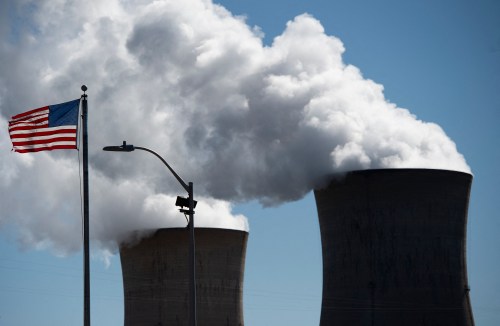
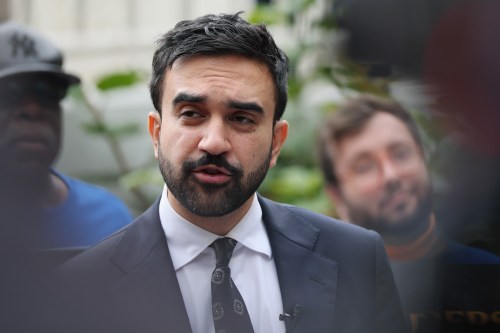

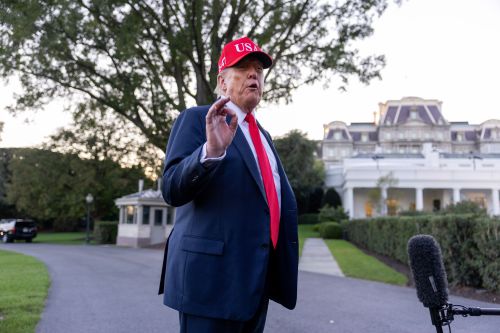






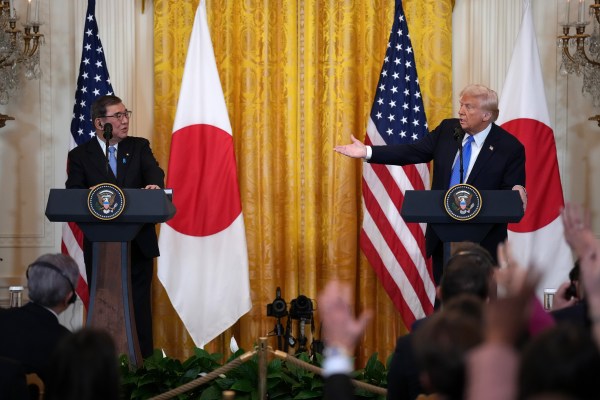

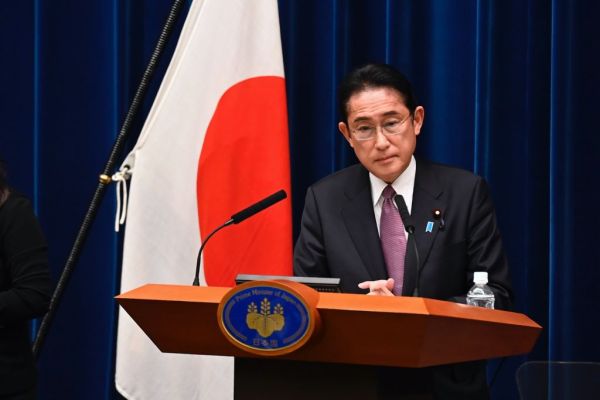


Please note that we at The Dispatch hold ourselves, our work, and our commenters to a higher standard than other places on the internet. We welcome comments that foster genuine debate or discussion—including comments critical of us or our work—but responses that include ad hominem attacks on fellow Dispatch members or are intended to stoke fear and anger may be moderated.
With your membership, you only have the ability to comment on The Morning Dispatch articles. Consider upgrading to join the conversation everywhere.